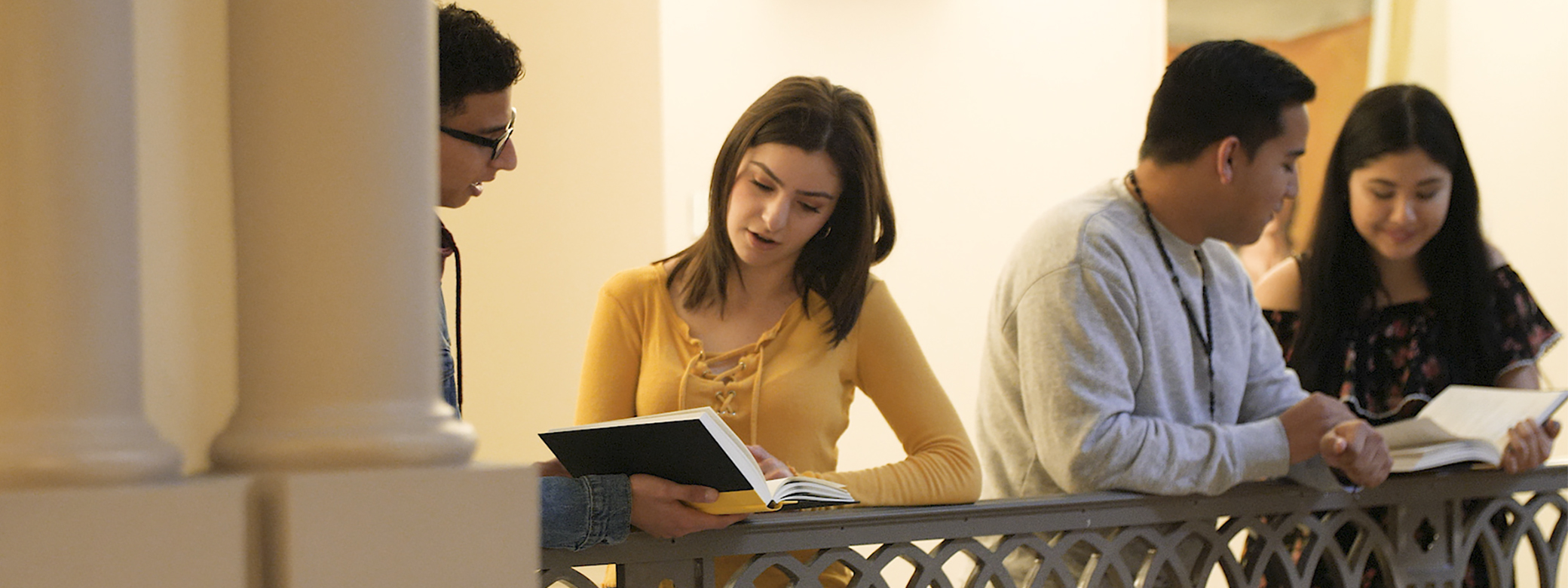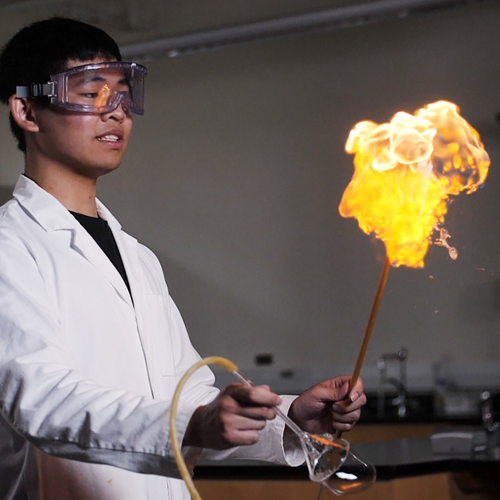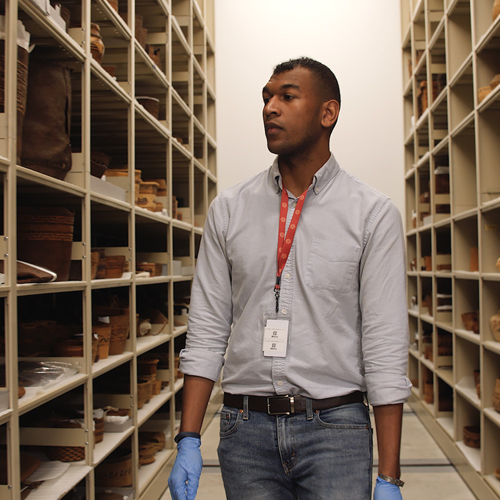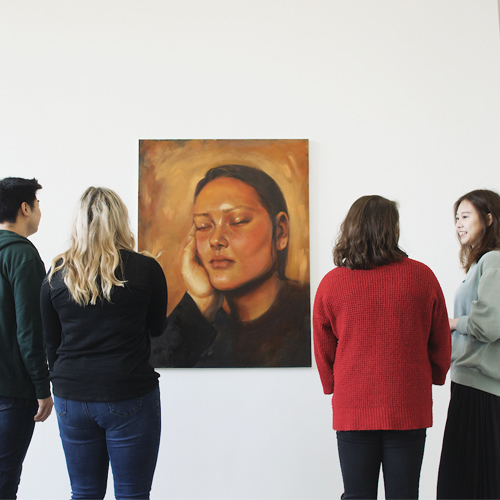Why study the Humanities?
In the Humanities Division, you will develop a global perspective and an understanding of diverse cultures, both of which are essential in our increasingly connected world. You’ll learn to think critically and communicate expressively across media and genres, engaging with texts, languages, history, culture and civilization. The Humanities pushes boundaries, embraces scholarship and investigates issues of power and difference.
Students ready to explore the Humanities as an undergraduate can also enroll in Humanities First, a First Year experience to connect with the UW community, think broadly about human life, and to explore the questions that matter.
Research
The research interests of our faculty and students are as wide-ranging as the cultures and civilizations our 12 departments explore. We focus on the past, present and future — from exploring the earliest collections of Buddhist manuscripts to investigating racial bias in automatic speech recognition software.
The Simpson Center for the Humanities, one of the largest and most comprehensive humanities centers in the country, provides funding and support for fellowships, research clusters, graduate study groups, conferences, and symposia on a wide range of research topics.
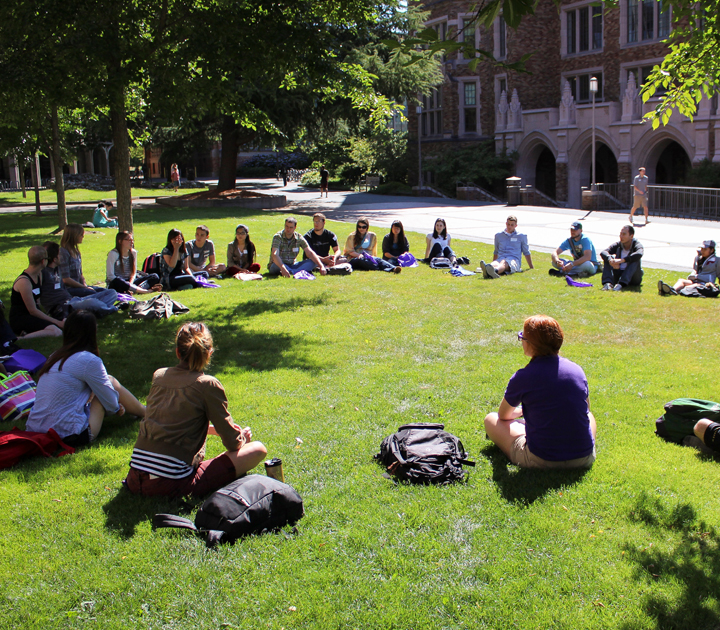
A Summer of Research
Through the undergraduate Summer Institute in the Arts & Humanities, you can spend your summer conducting original research on an interdisciplinary theme and present your findings to the community in a closing symposium. And you’ll receive academic credit, too.
What do Humanities students do after graduating?
When you study the Humanities, you’ll develop the necessary perspectives and critical thinking to explore the big questions of what it means to be human in our interconnected world. Because these are skills that employers value, you can use your humanities education to pursue a career in many industries including business, health care, media and public relations, technology and education.

CHID is all about asking questions, encouraging curiosity, and community building. There’s no one right answer, no one right way to get to a conclusion. That’s what I like about the humanities in general.
Alumni Career Paths
- Sales development manager
- Public health researcher
- Web analyst
- Publicist
- Business entrepreneur
- Educator
- Community organizer
- Attorney
- Editor
- Digital content creator
- Literary translator
Humanities programs
Whatever your interest, there’s a program in the Humanities Division for you.
-
Department of Asian Languages & Literature
- B.A., Asian Languages and Cultures
- B.A., Chinese
- B.A., Japanese
- B.A., Korean
- B.A., South Asian Languages and Cultures
- M.A., Asian Languages and Cultures
- M.A., Buddhist Studies
- M.A., Chinese
- M.A., Japanese
- M.A., South Asian Languages
- PhD, Asian Languages and Cultures
- PhD, Buddhist Studies
- PhD, Chinese
- PhD, Japanese
- PhD, South Asian Languages
-
Department of Cinema and Media Studies
- B.A., Cinema and Media Studies
- Cinema and Media Studies
- M.A., Cinema and Media Studies
- PhD, Cinema and Media Studies
-
Department of Classics
- B.A., Classical Studies
- B.A., Classics
- B.A., Greek
- B.A., Latin
- M.A., Classics
- M.A., Greek
- M.A., Latin
- PhD, Classics
- PhD, Classics and Ancient Philosophy
-
Department of Comparative History of Ideas
- B.A., Comparative History of Ideas
-
Department of English
- B.A., English: Creative Writing
- B.A., English: Language and Literature
- M.A., English: Language and Literature
- M.A., English: Teachers of English to Speakers of Other Languages
- M.F.A., English: Creative Writing
- PhD, English: Language and Literature
-
Department of French & Italian Studies
- B.A., French Studies
- B.A., Italian Studies
- M.A., French Studies
- PhD, French Studies
-
Department of German Studies
- B.A., German Studies
- M.A., German Studies: Literature and Culture
- M.A., German Studies: Pedagogy and Culture
- PhD, German Studies
-
Department of Linguistics
- B.A., Linguistics
- M.S., Computational Linguistics
- PhD, Linguistics
-
Department of Middle Eastern Languages & Cultures
- B.A., Middle Eastern Studies: Comparative Civilizations
- B.A., Middle Eastern Studies: Hebrew Bible and Ancient Near East
- B.A., Middle Eastern Studies: Languages and Cultures
- M.A., Middle Eastern Languages and Cultures
-
Department of Scandinavian Studies
- B.A., Danish
- B.A., Finnish
- B.A., Norwegian
- B.A., Scandinavian Area Studies
- B.A., Swedish
- M.A., Scandinavian Area Studies
- M.A., Scandinavian Languages and Literature
- PhD, Scandinavian Languages and Literature
-
Department of Slavic Languages & Literatures
- B.A., Eastern European Languages, Literature, and Culture
- B.A., Global Literary Studies
- B.A., Russian Language, Literature, and Culture
- M.A., Slavic Languages & Literatures
- PhD, Slavic Languages & Literatures
-
Department of Spanish and Portuguese Studies
- B.A., Spanish
- M.A., Hispanic Literary and Cultural Studies
- PhD, Hispanic Studies
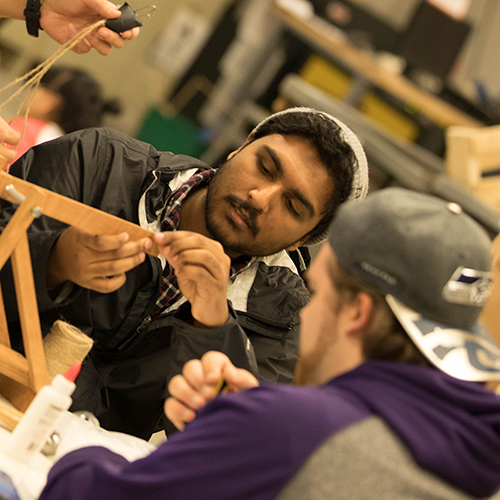
STEM in the Ancient World
Learn about the advanced technology of ancient Greece and Rome from the late Bronze Age to the early Roman Empire, and then put ancient innovations to the test by working in teams to build catapults and other ancient technology.

History of Television
Explore the long history of cable television — it's over 100 years old! — including early experiments in synchronizing sound to image, community access and the rise of niche programming, HBO and the rise of prestige television, and more.

Infant Brain & Language Development
Learn how biological and environmental factors shape language development in childhood, and explore how early language and brain growth inform children's opportunities to learn worldwide.
Ready to dive into the Humanities?
Learn a new language, explore cultures and broaden your perspective through the study of others.
Divisional Dean of Humanities
Brian Reed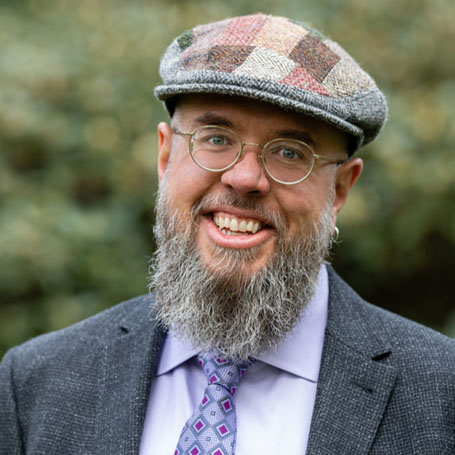
Assistant
Meta Godsell206-616-2128
godsell@uw.edu
